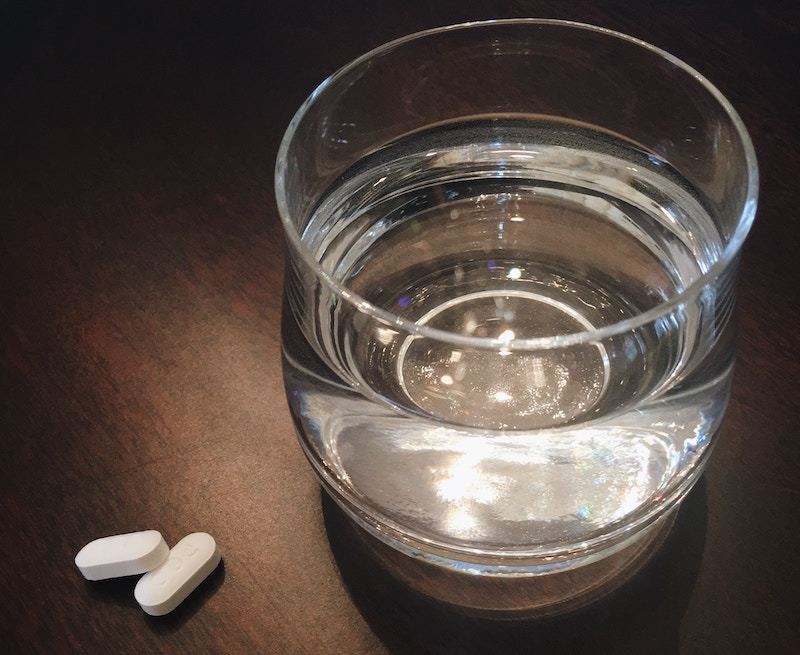Does NAC Help with Hirsutism Symptoms?

Many women who have hirsutism feel embarrassed by some of the symptoms. Excessive facial hair growth, while not physically harmful, can be very distressing. It’s why many women are seeking new and better methods of dealing with the symptoms of hirsutism. Some women are trying NAC, but can it help deal with the symptoms of hirsutism?
What Is Hirsutism?
Hirsutism is a condition that can cause a woman’s body to grow excessive amounts of hair on the face, back, chest, legs, shoulders, and groin area. This hair is darker and thicker than the usual body hair expected on a woman’s body. It can also cause other symptoms such as male pattern baldness, acne, a deepening voice, and an enlarged clitoris. Some women also notice weight gains and increased muscle mass in a way that would be typical of men.
Hirsutism can occur on its own without any underlying cause, but it is usually a symptom of another condition. It’s most commonly caused by PCOS, which affects around 10% of all women. It may also be caused by Congenital Adrenal Hyperplasia (CAH) or Cushing’s Syndrome.
Some women are more at risk for hirsutism than others. There is some evidence that women who are overweight are more likely to experience hirsutism. There’s also some evidence of a genetic link that puts women who have a family history of hirsutism at risk. Women from Mediterranean, South Asian and Middle Eastern backgrounds are also more likely to experience hirsutism.
Treating Hirsutism
There are a few treatment options for hirsutism. Some treatments depend on identifying the underlying cause of the hirsutism.
Hair Removal
Some women use traditional hair removal methods to deal with the symptoms of hirsutism. Methods like shaving, tweezing, waxing, threading, and epilation are not permanent, and will need to be repeated on a regular basis. Other methods such as laser hair removal are longer lasting, but maintenance sessions will need to be carried out on a yearly or twice yearly basis. Some methods can be used at home, but other require a trained professional.
Prescription medications
Birth control pills are often prescribed as a first line treatment for hirsutism. They can help bring hormones back into regular levels, which in turn reduces the symptoms. Also, anti-androgens are sometimes used to lower the androgen levels.
Further Reading: The Best Birth Control Pills for PCOS and Hirsutism
Vaniqa Cream
Vaniqa cream is the only prescription topical cream to treat excess facial hair in women. It slows the hair growth, but it does not remove any existing hair. Because of this, it will need to be used in conjunction with a method of hair removal. It can take up to six months before you see any difference in hair growth. Symptoms will return when you stop using the cream.
Diagnosing and Treating Hirsutism
Many women with hirsutism have reported feeling too embarrassed to see a doctor. According to our 2019 study, they sometimes wait many years, before consulting a health care professional. Others have reported feeling as though they weren’t being taken seriously. Some women reported that some doctors believe hirsutism to be a cosmetic issue, and don’t understand how it affects the patients quality of life, and the other potential health risks.
This is why many women who have hirsutism look for alternative treatment methods, and supplements that may help. Some women have been asking us if NAC would be helpful for Hirsutism.
What Is NAC?
NAC is short for N-Acetyl Cysteine. It’s an amino acid that helps the body produce glutathione, which is considered an antioxidant.
NAC is most often used as a treatment for acetaminophen (Paracetamol or Tylenol) overdoses. It also has uses as a drug for patients with lung collapse by mucus blockage and for diagnostic lung tests.
NAC research is ongoing into how well it can treat PCOS and the associated symptoms, like hirsutism. One study with 100 women with PCOS compared the effects of NAC and metformin. The results after the 24 week period were similar, with most participants recording decreases in BMI, testosterone levels, and hirsutism score. However, more clinical research is needed to confirm this effect and the usefulness of NAC for the treatment of PCOS.
How Does NAC Work?
NAC acts in a number of ways within the body that can help ease the symptoms of PCOS:
Firstly, according to one study, it can improve the insulin sensitivity for women with PCOS, and lowers the testosterone levels. Another study found that NAC can help improve ovulation when used in conjunction with clomid. Women who took clomid and NAC had higher ovulation rates, and higher rates of pregnancy. However, if they are resistant to clomid then NAC is unlikely to help.
NAC can also help reduce inflammation in the body. PCOS can cause higher levels of oxidative stress, which damages cells. NAC reduces the oxidative stress levels, cell damage and inflammation.
How To Take NAC?
NAC will need to be prescribed by your physician or dietitian in order to make sure you get the correct dose. There are some over the counter formulations of NAC, but every manufacturer has its own formulation. Follow the advice of your physician or dietitian on how much to take.
There may be some side effects with NAC, such as disturbances of the gastrointestinal tract causing vomiting nausea, diarrhea and constipation. In rare cases, it can cause side effects such as fevers, headaches, low blood pressure, liver problems, rashes and drowsiness. It also can not be used if you have asthma, are taking nitroglycerin, blood thinner, and it may interact with some blood pressure medications.
Tip: If you would like to learn more about best natural remedies for hirsutism, read our in-depth article HERE.
